
Apple M2 (8-GPU) Benchmark, Test and specs
Last updated:
The Apple M2 (8-GPU) has 8 cores with 8 threads and is based on the 2. gen of the Apple M series series. The processor was released in Q2/2022. The Apple M2 (8-GPU) scores 1,874 points in the Geekbench 5 single-core benchmark. In the Geekbench 5 multi-core benchmark, the result is 8,853 points.
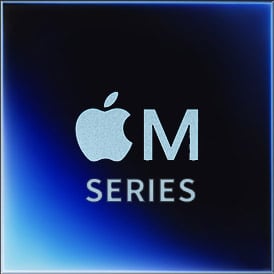
| Name: | Apple M2 (8-GPU) |
|---|---|
| Family: | Apple M series (23) |
| CPU group: | Apple M2 (8) |
| Architecture: | M2 |
| Segment: | Mobile |
| Generation: | 2 |
| Predecessor: | Apple M1 |
| Successor: | Apple M3 (8-GPU) |
CPU Cores and Base Frequency
The Apple M2 (8-GPU) has 8 CPU cores and can calculate 8 threads in parallel. The clock frequency of the Apple M2 (8-GPU) is 0.66 GHz (3.50 GHz). The number of CPU cores greatly affects the speed of the processor and is an important performance indicator.
| CPU Cores / Threads: | 8 / 8 |
|---|---|
| Core architecture: | hybrid (big.LITTLE) |
| A-Core: | 4x Avalanche |
| B-Core: | 4x Blizzard |
| Hyperthreading / SMT: | No |
|---|---|
| Overclocking: | No |
| A-Core Frequency: | 0.66 GHz (3.50 GHz) |
| B-Core Frequency: | 0.60 GHz (2.42 GHz) |
Artificial Intelligence and Machine Learning
Processors with the support of artificial intelligence (AI) and machine learning (ML) can process many calculations, especially audio, image and video processing, much faster than classic processors. Algorithms for ML improve their performance the more data they have collected via software. ML tasks can be processed up to 10,000 times faster than with a classic processor.
| AI hardware: | Apple Neural Engine |
|---|---|
| AI specifications: | 16 Neural cores @ 15.8 TOPS |
Internal Graphics
The Apple M2 (8-GPU) has integrated graphics, called iGPU for short. Specifically, the Apple M2 (8-GPU) uses the Apple M2 (8 Core), which has 1024 texture shaders and 128 execution units. The iGPU uses the system's main memory as graphics memory and sits on the processor's die.
| GPU name: | Apple M2 (8 Core) |
|---|---|
| GPU frequency: | 0.45 GHz |
| GPU (Turbo): | 1.40 GHz |
| Compute units: | 128 |
| Shader: | 1024 |
| Hardware Raytracing: | No |
| Release date: | Q2/2022 |
| Max. displays: | 2 |
|---|---|
| Generation: | 2 |
| Direct X: | -- |
| Technology: | 5 nm |
| Max. GPU Memory: | 24 GB |
| Frame Generation: | No |
Hardware codec support
A photo or video codec that is accelerated in hardware can greatly accelerate the working speed of a processor and extend the battery life of notebooks or smartphones when playing videos.
| h265 / HEVC (8 bit): | Decode / Encode |
|---|---|
| h265 / HEVC (10 bit): | Decode / Encode |
| h264: | Decode / Encode |
| VP8: | Decode |
| VP9: | Decode / Encode |
| AV1: | No |
|---|---|
| AVC: | Decode |
| VC-1: | Decode |
| JPEG: | Decode / Encode |
Memory & PCIeThe processor can use up to 24 GB memory in 2 (Dual Channel) memory channels. The maximum memory bandwidth is 102.4 GB/s. The memory type as well as the amount of memory can greatly affect the speed of the system. |
|
| Memory type: | Memory bandwidth: |
|---|---|
| LPDDR5-6400 | 102.4 GB/s |
| Max. Memory: | 24 GB |
| Memory channels: | 2 (Dual Channel) |
| ECC: | No |
| PCIe: | 4.0 |
| PCIe Bandwidth: | -- |
Thermal ManagementThe thermal design power (TDP for short) of the processor is 20 W. The TDP specifies the necessary cooling solution that is required to cool the processor sufficiently. The TDP usually gives a rough idea of the actual power consumption of the CPU. |
|
|---|---|
| TDP (PL1 / PBP): | 20 W |
| TDP (PL2): | -- |
| TDP up: | 25 W |
| TDP down: | 10 W |
| Tjunction max.: | 100 °C |
Technical details
The Apple M2 (8-GPU) is made in 5 nm. The smaller the manufacturing process of a CPU, the more modern and energy-efficient it is. Overall, the processor has 20.00 MB cache. A large cache can greatly speed up the processor's speed in some cases such as games.
| Technology: | 5 nm |
|---|---|
| Chip design: | Chiplet |
| Socket: | -- |
| L2-Cache: | 20.00 MB |
| L3-Cache: | -- |
| AES-NI: | Yes |
| Operating systems: | macOS, iPadOS |
| Virtualization: | Apple Virtualization Framework |
|---|---|
| Instruction set (ISA): | Armv8.5-A (64 bit) |
| ISA extensions: | Rosetta 2 x86-Emulation |
| Release date: | Q2/2022 |
| Release price: | -- |
| Part Number: | -- |
| Documents: | Technical data sheet |
Rate this processor
Benchmark results

The benchmark results for the Apple M2 (8-GPU) have been carefully checked by us. We only publish benchmark results that have been created by us or that have been submitted by a visitor and then checked by a team member. All results are based on and fullfill our benchmark guidelines.
Screenshots:
Screenshots:
- Geekbench 5.4.5 (8 GB LPDDR5-6400), macOS 12.4
- Geekbench 6.1.0 on Apple MacBook Air (2022) (8 GB LPDDR5-6400), macOS 13.5
- Cinebench R23 on Apple MacBook Air (2022) (8 GB LPDDR5-6400), macOS 13.5
- Cinebench 2024 on Apple MacBook Air (2022) (8 GB LPDDR5-6400), macOS 13.5
- Apple Powermetrics on Apple MacBook Air 14 (2022) (8 GB LPDDR5-6400), macOS 13.5
Cinebench 2024 (Single-Core)
The Cinebench 2024 benchmark is based on the Redshift rendering engine, which is also used in Maxon's 3D program Cinema 4D. The benchmark runs are each 10 minutes long to test whether the processor is limited by its heat generation.

|
Apple M2 Max (38-GPU)
12C 12T @ 3.50 GHz |
||

|
Intel Core i9-13900
24C 32T @ 5.60 GHz |
||

|
Intel Core i9-13900F
24C 32T @ 5.60 GHz |
||
|
|
Apple M2 (8-GPU)
8C 8T @ 3.50 GHz |
||

|
Apple M2
8C 8T @ 3.50 GHz |
||

|
AMD Ryzen Threadripper 7970X
32C 64T @ 5.30 GHz |
||

|
AMD Ryzen 7 7700X
8C 16T @ 5.40 GHz |
||
Cinebench 2024 (Multi-Core)
The Multi-Core test of the Cinebench 2024 benchmark uses all cpu cores to render using the Redshift rendering engine, which is also used in Maxons Cinema 4D. The benchmark run is 10 minutes long to test whether the processor is limited by its heat generation.

|
AMD Ryzen 5 3600
6C 12T @ 4.20 GHz |
||

|
AMD Ryzen 5 5600H
6C 12T @ 4.20 GHz |
||

|
AMD Ryzen 5 5600HS
6C 12T @ 4.20 GHz |
||
|
|
Apple M2 (8-GPU)
8C 8T @ 3.50 GHz |
||

|
Apple M2
8C 8T @ 3.50 GHz |
||

|
Intel Core i5-12500H
12C 16T @ 4.50 GHz |
||

|
AMD Ryzen 7 1800X
8C 16T @ 4.00 GHz |
||
Cinebench R23 (Single-Core)
Cinebench R23 is the successor of Cinebench R20 and is also based on the Cinema 4 Suite. Cinema 4 is a worldwide used software to create 3D forms. The single-core test only uses one CPU core, the amount of cores or hyperthreading ability doesn't count.

|
AMD Ryzen 7 PRO 6860Z
8C 16T @ 4.73 GHz |
||

|
AMD Ryzen 5 5600X
6C 12T @ 4.60 GHz |
||

|
AMD Ryzen 7 5800
8C 16T @ 4.60 GHz |
||
|
|
Apple M2 (8-GPU)
8C 8T @ 3.50 GHz |
||

|
Apple M2
8C 8T @ 3.50 GHz |
||

|
AMD Ryzen 7 PRO 6850U
8C 16T @ 4.70 GHz |
||

|
AMD Ryzen 9 6900HS
8C 16T @ 4.60 GHz |
||
Cinebench R23 (Multi-Core)
Cinebench R23 is the successor of Cinebench R20 and is also based on the Cinema 4 Suite. Cinema 4 is a worldwide used software to create 3D forms. The multi-core test involves all CPU cores and taks a big advantage of hyperthreading.

|
AMD Ryzen 7 1700X
8C 16T @ 3.60 GHz |
||

|
AMD Ryzen 5 4600HS
6C 12T @ 4.00 GHz |
||

|
Intel Core i9-9880H
8C 16T @ 3.40 GHz |
||
|
|
Apple M2 (8-GPU)
8C 8T @ 3.50 GHz |
||

|
Apple M2
8C 8T @ 3.50 GHz |
||

|
Intel Core i7-9700F
8C 8T @ 3.80 GHz |
||

|
Intel Core i7-9700
8C 8T @ 3.80 GHz |
||
Geekbench 5, 64bit (Single-Core)
Geekbench 5 is a cross plattform benchmark that heavily uses the systems memory. A fast memory will push the result a lot. The single-core test only uses one CPU core, the amount of cores or hyperthreading ability doesn't count.

|
Intel Core i9-11900K
8C 16T @ 5.30 GHz |
||

|
Intel Core i9-11900KF
8C 16T @ 5.30 GHz |
||

|
Intel Core i5-14500
14C 20T @ 5.00 GHz |
||
|
|
Apple M2 (8-GPU)
8C 8T @ 3.50 GHz |
||

|
Apple M2 Max (30-GPU)
12C 12T @ 3.50 GHz |
||

|
Apple M2 Pro (10-CPU 16-GPU)
10C 10T @ 3.50 GHz |
||

|
Apple M2 Max (38-GPU)
12C 12T @ 3.50 GHz |
||
Geekbench 5, 64bit (Multi-Core)
Geekbench 5 is a cross plattform benchmark that heavily uses the systems memory. A fast memory will push the result a lot. The multi-core test involves all CPU cores and taks a big advantage of hyperthreading.

|
AMD Ryzen 7 PRO 6860Z
8C 16T @ 2.70 GHz |
||

|
AMD EPYC 7301
16C 32T @ 2.70 GHz |
||

|
Intel Xeon Gold 5117
14C 28T @ 2.40 GHz |
||
|
|
Apple M2 (8-GPU)
8C 8T @ 3.50 GHz |
||

|
AMD Ryzen 5 PRO 8640U
6C 12T @ 3.50 GHz |
||

|
AMD Ryzen 5 8640U
6C 12T @ 3.50 GHz |
||

|
AMD Ryzen 5 PRO 7640U
6C 12T @ 3.50 GHz |
||
Geekbench 6 (Single-Core)
Geekbench 6 is a benchmark for modern computers, notebooks and smartphones. What is new is an optimized utilization of newer CPU architectures, e.g. based on the big.LITTLE concept and combining CPU cores of different sizes. The single-core benchmark only evaluates the performance of the fastest CPU core, the number of CPU cores in a processor is irrelevant here.

|
Intel Core i9-12900E
16C 24T @ 5.00 GHz |
||

|
Intel Core i9-13900E
24C 32T @ 5.20 GHz |
||
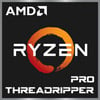
|
AMD Ryzen Threadripper PRO 7985WX
64C 128T @ 5.10 GHz |
||
|
|
Apple M2 (8-GPU)
8C 8T @ 3.50 GHz |
||

|
Apple M2
8C 8T @ 3.50 GHz |
||

|
Intel Core i5-14500T
14C 20T @ 4.80 GHz |
||

|
Intel Core i9-12900K
16C 24T @ 5.20 GHz |
||
Geekbench 6 (Multi-Core)
Geekbench 6 is a benchmark for modern computers, notebooks and smartphones. What is new is an optimized utilization of newer CPU architectures, e.g. based on the big.LITTLE concept and combining CPU cores of different sizes. The multi-core benchmark evaluates the performance of all of the processor's CPU cores. Virtual thread improvements such as AMD SMT or Intel's Hyper-Threading have a positive impact on the benchmark result.

|
AMD Ryzen 7 6800H
8C 16T @ 3.80 GHz |
||

|
Intel Xeon W-2255
10C 20T @ 4.40 GHz |
||

|
Intel Core i7-1370P
14C 20T @ 1.90 GHz |
||
|
|
Apple M2 (8-GPU)
8C 8T @ 3.50 GHz |
||

|
Apple M2
8C 8T @ 3.50 GHz |
||

|
Intel Core i7-11700B
8C 16T @ 4.00 GHz |
||

|
Intel Core i9-11900F
8C 16T @ 3.80 GHz |
||
iGPU - FP32 Performance (Single-precision GFLOPS)
The theoretical computing performance of the internal graphics unit of the processor with simple accuracy (32 bit) in GFLOPS. GFLOPS indicates how many billion floating point operations the iGPU can perform per second.

|
AMD Ryzen 5 8600G
AMD Radeon 760M @ 2.80 GHz |
||

|
AMD Ryzen 5 PRO 8600G
AMD Radeon 760M @ 2.80 GHz |
||

|
AMD Ryzen 5 PRO 8600GE
AMD Radeon 760M @ 2.80 GHz |
||
|
|
Apple M2 (8-GPU)
Apple M2 (8 Core) @ 1.40 GHz |
||

|
Apple M3 (8-GPU)
Apple M3 (8 Core) @ 1.40 GHz |
||

|
AMD Ryzen 5 PRO 8640U
AMD Radeon 760M @ 2.60 GHz |
||

|
AMD Ryzen 5 PRO 8640HS
AMD Radeon 760M @ 2.60 GHz |
||
Estimated results for PassMark CPU Mark
Some of the CPUs listed below have been benchmarked by CPU-monkey. However the majority of CPUs have not been tested and the results have been estimated by a CPU-monkey’s secret proprietary formula. As such they do not accurately reflect the actual Passmark CPU mark values and are not endorsed by PassMark Software Pty Ltd.

|
AMD Ryzen 7 PRO 1700X
8C 16T @ 3.60 GHz |
||

|
Intel Xeon Gold 5215
10C 20T @ 2.50 GHz |
||

|
Intel Xeon D-1726
6C 12T @ 3.30 GHz |
||
|
|
Apple M2 (8-GPU)
8C 8T @ 3.50 GHz |
||

|
Apple M2
8C 8T @ 3.50 GHz |
||

|
AMD Ryzen 5 5600U
6C 12T @ 3.60 GHz |
||

|
Intel Xeon Gold 5217
8C 16T @ 3.50 GHz |
||
Blender 2.81 (bmw27)
Blender is a free 3D graphics software for rendering (creating) 3D bodies, which can also be textured and animated in the software. The Blender benchmark creates predefined scenes and measures the time (s) required for the entire scene. The shorter the time required, the better. We selected bmw27 as the benchmark scene.

|
Intel Core i9-9880H
8C 16T @ 3.40 GHz |
||

|
Intel Core i9-9980HK
8C 16T @ 3.40 GHz |
||

|
Intel Core i7-5960X
8C 16T @ 3.20 GHz |
||
|
|
Apple M2 (8-GPU)
8C 8T @ 3.50 GHz |
||

|
Apple M2
8C 8T @ 3.50 GHz |
||

|
AMD Ryzen 5 2600X
6C 12T @ 4.00 GHz |
||

|
Intel Core i7-6850K
6C 12T @ 3.60 GHz |
||
CPU performance per watt (efficiency)
Efficiency of the processor under full load in the Cinebench R23 (multi-core) benchmark. The benchmark result is divided by the average energy required (CPU package power in watts). The higher the value, the more efficient the CPU is under full load.

|
AMD Ryzen 5 PRO 8640U
10,675 CB R23 MC @ 24 W |
||

|
Apple M1
7,759 CB R23 MC @ 18 W |
||

|
Apple M1 (7-GPU)
7,759 CB R23 MC @ 18 W |
||
|
|
Apple M2 (8-GPU)
8,558 CB R23 MC @ 20 W |
||

|
Apple M2
8,558 CB R23 MC @ 20 W |
||

|
Apple M3 Max (16-CPU 40-GPU)
24,028 CB R23 MC @ 57 W |
||

|
Apple M2 Pro (10-CPU 16-GPU)
12,125 CB R23 MC @ 30 W |
||
Performance for Artificial Intelligence (AI) and Machine Learning (ML)
Processors with the support of artificial intelligence (AI) and machine learning (ML) can process many calculations, especially audio, image and video processing, much faster than classic processors. The performance is given in the number (trillions) of arithmetic operations per second (TOPS).

|
Apple A15 Bionic (4-GPU)
6C 6T @ 3.23 GHz |
||

|
Apple A15 Bionic (5-GPU)
6C 6T @ 3.23 GHz |
||

|
Apple M2
8C 8T @ 0.66 GHz |
||
|
|
Apple M2 (8-GPU)
8C 8T @ 0.66 GHz |
||

|
Qualcomm Snapdragon 870
8C 8T @ 3.20 GHz |
||

|
Samsung Exynos 990
8C 8T @ 2.73 GHz |
||

|
Qualcomm Snapdragon 865+
8C 8T @ 3.10 GHz |
||
Benchmarks

Cinebench 2024 (SC)
272 entries
272 entries

Cinebench 2024 (MC)
271 entries
271 entries

Cinebench R23 (SC)
586 entries
586 entries

Cinebench R23 (MC)
565 entries
565 entries

Geekbench 5 (SC)
2,488 entries
2,488 entries

Geekbench 5 (MC)
2,461 entries
2,461 entries

Geekbench 6 (SC)
1,755 entries
1,755 entries

Geekbench 6 (MC)
1,703 entries
1,703 entries

FP32 SP (iGPU)
2,042 entries
2,042 entries

PassMark CPU-Mark
2,392 entries
2,392 entries

Blender 2.81 (bmw27)
190 entries
190 entries

CPU performance per watt (efficiency)
109 entries
109 entries

AI / ML Performance
119 entries
119 entries
News and articles for the Apple M2 (8-GPU)
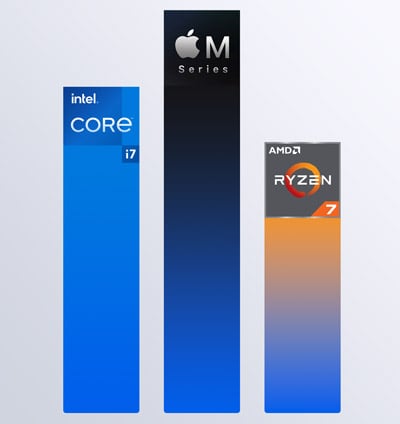
Most popular processors in the first half of 2022
Posted by Stefan on 2022-07-05
In the past we had repeatedly written about our most popular processors. Since this format was quiet popular, I would like to continue this today and introduce you the most popular processors in the first half of 2022.
With more than 2 million page views per month, CPU-Monkey is one of the biggest comparison sites for processors and is currently available in 16 languages.
With more than 2 million page views per month, CPU-Monkey is one of the biggest comparison sites for processors and is currently available in 16 languages.
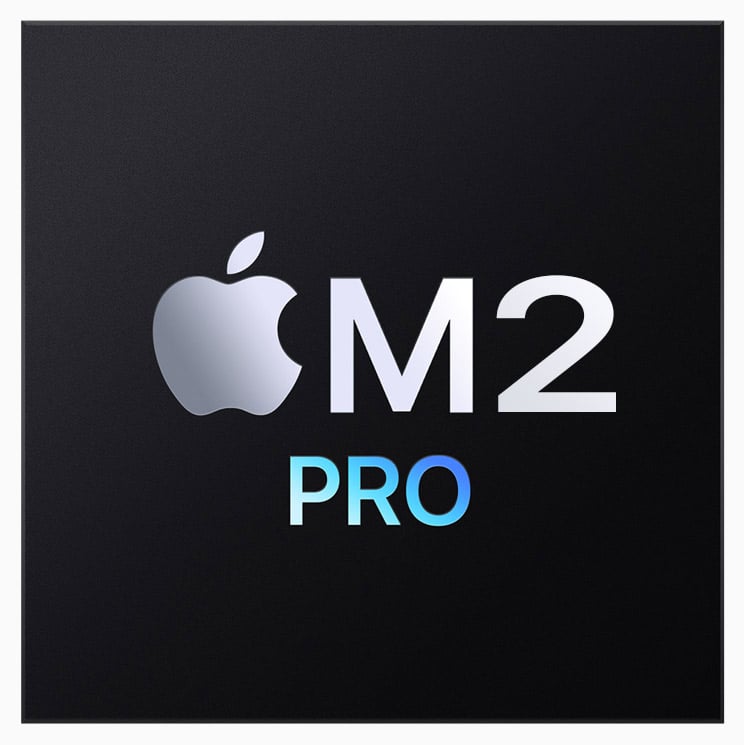
Apple M2 Pro with more CPU cores and production in 3 nm ?
Posted by Stefan on 2022-06-28
After Apple surprisingly presented the normal Apple M2 processor as the first successor to the Apple M1 already in June 2022, the Apple M2 Pro and the Apple M2 Max may follow in autumn. The difference in performance compared to the basic version could be even greater this time and range from 25 to 40 percent.
In this article we describe how Apple could realize this and why the price should also go up.
In this article we describe how Apple could realize this and why the price should also go up.
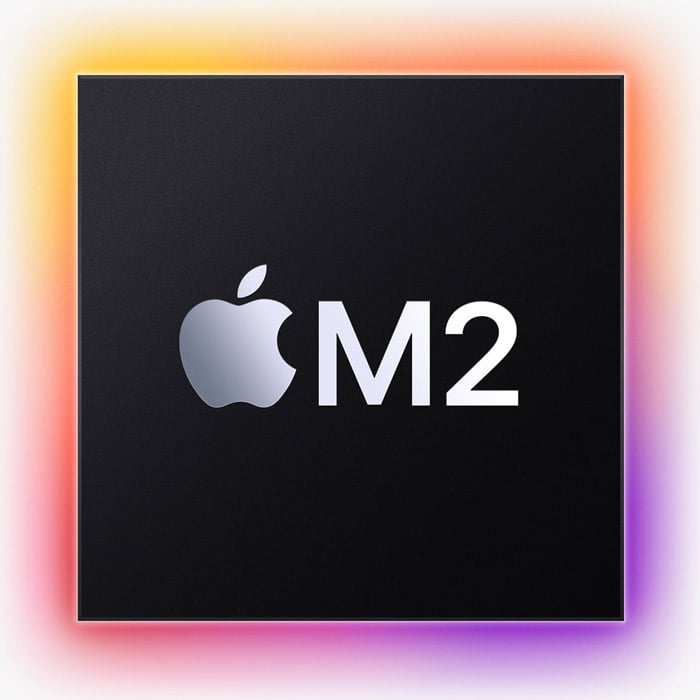
Apple M2 vs Apple M1 - What are the differences?
Posted by Stefan on 2022-06-09
During WWDC 2022 on June 6th, 2022 Apple surprisingly presented its new Apple M2 processor. This will initially be installed in a completely revised Apple MacBook Air with 13.6 inches, a even thinner form factor and new colors. Apple also updated the already known (old) Apple MacBook Pro 13.3 with touch bar.
Many leakers had counted on Apple not presenting its new second-generation M processor until the fall. But things turned out differently. And there is very likely a reason for that: the improvements in the Apple M2 are limited compared to the predecessor.
Many leakers had counted on Apple not presenting its new second-generation M processor until the fall. But things turned out differently. And there is very likely a reason for that: the improvements in the Apple M2 are limited compared to the predecessor.
Description of the processor
The Apple M2 processor was released in the second quarter of 2022 and came on the market in 2 variants. Once with 8 GPU cores and then another variant with 10 GPU cores. As our name suggests, this is the variant with 8 GPU cores. This variant was actually only used in one device, namely the 13-inch MacBook Air from 2022. The Apple M2 (8-GPU) is the direct successor to the Apple M1 from 2020.The Apple M2 (8-GPU) is built in a hybrid big.LITTLE core architecture; in addition to 4 performance cores of the Avalanche type, there are also 4 efficiency cores of the Blizzard type. The Avalanche processor cores clock at 660 megahertz and can increase their clock speed to up to 3.50 gigahertz. The four Blizzard processor cores clock at 600 megahertz and the maximum turbo clock is 2.42 gigahertz. None of the processor cores support hyperthreading technology and there is no option to overclock the processor.
The processor is not able to be equipped with a dedicated graphics card, but it is equipped with an internal graphics unit. This graphics unit consists of 128 execution units with 1024 shaders and can operate a maximum of 2 screens with it. The base clock of the iGPU is 450 megahertz and in turbo mode the clock can be increased to up to 1.40 gigahertz. This means that the graphics unit achieves an FP32 computing power of a very strong 2840 GigaFLOPS, with single precision.
The Apple M2 (8-GPU) is equipped with 2 memory channels and can be equipped with up to 24 gigabytes of LPDDR5-6400 RAM. Here, however, you have to decide when you buy the device how much RAM you want to have, because it is not possible to upgrade it later.
Both the processor and the internal graphics unit are manufactured with a structure width of 5 nanometers.
Popular comparisons
back to index





